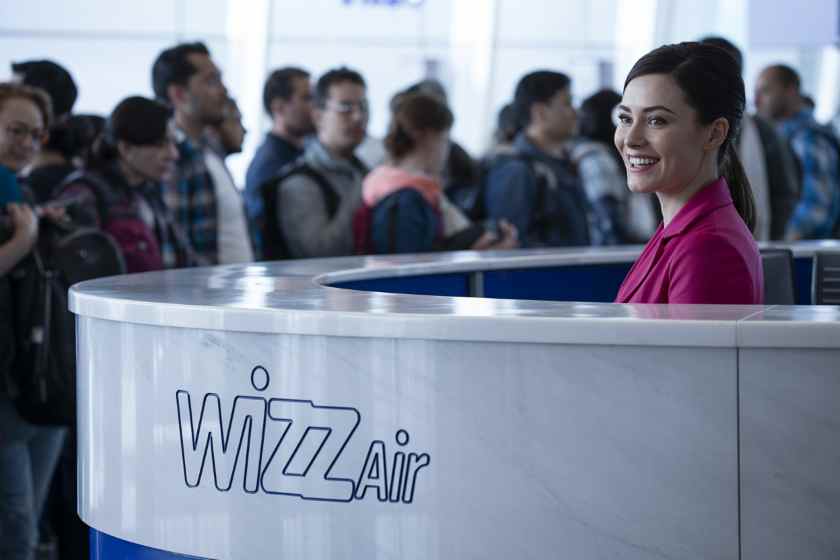Published on
August 15, 2025

Wizz Air Hungary plans to launch a subsidiary and create an operating base in Israel, most probably at Tel Aviv’s Ben Gurion Airport, to deepen its presence in markets with robust travel demand and to keep fares low. By basing aircraft and crews on-site, the airline aims to offer a denser schedule of flights and improved timing while sharpening its competitive edge against local operators—most pointedly El Al, the flag carrier. The initiative, however, has drawn loading fire from El Al, which has lodged formal objections with authorities, flagging potential disruption to Israel’s airline sector and to national security.
Israeli Transport Ministry officials are now examining the application, weighing its economic and security dimensions before a definitive verdict. Miri Regev, the transport minister, has declared an overarching aim to heighten competitive pressures, uplift service levels, and pare ticket prices for Israeli travellers. The minister also has reiterated that any verdict will methodically weigh possible ramifications for national strength and security alongside commercial advantages.
Wizz Air’s Growth Vision and Its Boost for Israel’s Tourism Sector
Wizz Air, which has carved out a comfortable niche as a low-cost carrier across Europe and beyond, is now stepping on the accelerator with fresh expansion moves that include a new operational base in Israel. By setting up shop in the Holy Land, Wizz Air intends to present Israeli travelers with a wider choice of flight times and sharper ticket prices. The ripple effect, for both outbound and inbound traffic, is a broader and cheaper selection of routes to Europe, the wider Middle East, and beyond. This, in turn, positions Israel as a more attractive tapestry of direct city-break options for leisure travelers and a more convenient stop for business routes, strengthening its reputation as a key transit hub.
Already on Europe’s tourism radar for its ancient markets and modern cafes, Israel has the cultural and historical depth that travelers seek. Wizz Air’s arrival on the local runway could tip the scales further in Israel’s favor. With the airline scheduling more take-offs and landings at low fares, overseas holidaymakers may decide that visiting Jerusalem, Tel Aviv, or Eilat is now a financially savvy choice. The upshot on the ground would likely be fuller hotels, buzzier markets, and more line-ups outside archaeological sites, spreading the economic cheer to restaurants, guides, and souvenir shops.
El Al has signalled its worry over what a foreign airline establishing a local base could mean for the country’s aviation stability. In a letter to government officials, the airline pointed to Wizz Air’s proposed stationing as a move that could tip the industry onto an uneven playing field. It highlighted the disparity: while Israeli carriers face tighter security oversight and higher operating expenses, foreign airlines enjoy select exemptions that allow them to compete at a cost advantage.
Airline Information
The letter expresses an especially acute unease about the role of foreign airlines in times of national crisis. El Al reminded officials that during the recent war with Iran, only Israeli fleets continued to land and depart from the country, while foreign carriers—including Wizz—halted service. The carrier contends that this experience proves the strategic need to preserve a robust domestic airline that can operate unfettered during emergencies, thereby helping to anchor national resilience and ensure continued connectivity.
Recent deliberations by the Israeli Transport Ministry on Wizz Air’s approval request focus on multiple, often interwoven, priorities. The ministry recognizes that a wider roster of low-cost carriers might drive down fares and enhance cabin offerings, yet it remains attentive to the security and integrity of the national aviation grid. Any uplift in consumer choice needs to be matched by an appraisal of how the domestic sector’s capacity to absorb, and rebound from, crises might be altered.
Attention also turns to the permanence of a foreign airline’s Israeli base. While the resultant rise in seat supply and route count could mean measurable gains for the traveling public, the government must weigh such gains against the longevity of the sector and its strategic alignment with national security. The ministry’s inquiry is not solitary: it convenes input from El Al and the wider airline sector, alongside input from tourism boards and security experts, so that a multitude of angles is given voice and exhaustive impact is projected, before issuing a conclusive ruling.
If the Israeli authorities give the green light for Wizz Air to set up a base in Tel Aviv, the move could noticeably lift the nation’s tourism economy. More regular and cheaper flights into and out of Israel would probably draw extra overseas visitors, giving a welcome boost to local hotels, eateries, and attractions. Furthermore, the arrival of another low-cost airline may create new travel lanes for residents, making it easier and less pricey to reach more destinations abroad.
Beyond tourism, the rivalry that would arise between Wizz Air and El Al could spur genuine innovation across Israel’s aviation sector. Both airlines would likely sharpen their games, tweaking everything from customer service and timetables to fare structures. The result may be a livelier, more varied air travel landscape, where passengers enjoy a wider set of travel choices at more wallet-friendly prices.
Conclusion
Wizz Air’s plan to set up a Tel Aviv base and run domestic services has reignited a discussion on how best to merge tourism growth, competitive markets, and national aviation security. The Israeli Transport Ministry will carefully assess the economic returns and the security ramifications of the initiative, determined to reach a ruling that uplifts the tourism sector while safeguarding the nation’s wider strategic framework. While the ministry studies the effect on domestic players, particularly El Al, passengers in Israel and overseas will track the deliberations, eager to see whether the rising appetite for low fares can coexist with a sturdy and secure aviation network.







